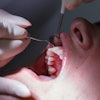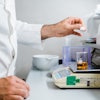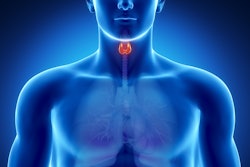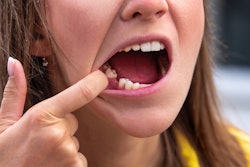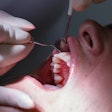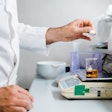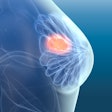Thyroid hormone (TH) levels may be useful biomarkers for identifying an individual’s gum disease risk, potentially aiding early treatment and personalized care. This study was recently published in the International Dental Journal.
Furthermore, thyroid-stimulating hormone (TSH) was identified as an important factor in evaluating both the risk and severity of periodontitis, the authors wrote.
“Our findings demonstrate that thyroid function parameters, particularly TSH levels, may serve as valuable biomarkers for assessing both the risk and progression of periodontitis,” wrote the authors, led by Han Wang of the Jilin University Hospital of Stomatology (Int Dent J, July 23, 2025, Vol. 75:5, 100921).
This study used data from the U.S. National Health and Nutrition Examination Survey 2009-2010 and 2011-2012 cycles, which included 2,352 participants. Thyroid function markers TSH, free thyroxine (FT4), total triiodothyronine, total thyroxine (TT4), and free T3 were obtained from laboratory thyroid profiles, they wrote.
Periodontitis cases were categorized by severity based on clinical attachment loss and probing pocket depth to better analyze disease progression. Additional variables such as demographic, lifestyle, and health factors were used as predictors in machine learning (ML) models.
Feature importance analysis found body mass index, age, and TSH to be among the top predictors. The ML method Shapley Additive exPlanations value analysis showed some differences, highlighting gender, age, TT4, TSH, and the FT4/TT4 ratio as the most influential factors, they wrote.
While certain demographic and thyroid-related variables were identified as important, their exact effect varied by evaluation approach.
In multiclass classification, TSH ranked highly in both analyses, and models without thyroid function variables performed significantly worse than those that included them.
However, the study had limitations. The lack of external validation may have reduced the predictive models’ generalizability and practical use, the authors added.
“These results suggest that TH concentrations could provide clinically meaningful insights for periodontal disease evaluation,” they concluded.

